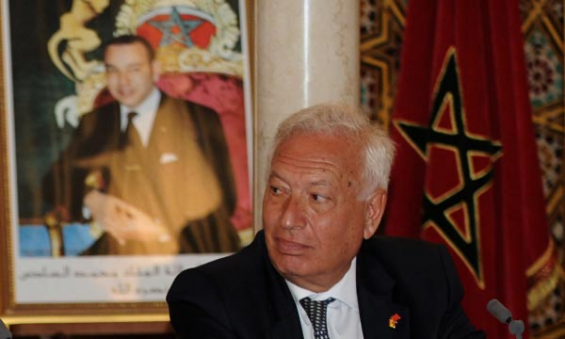While a video shared online showed King Mohammed VI in the waters of Ceuta, the former Spanish Foreign Minister (2011-2016), José Margallo recalled a similar story regarding the interception of the royal yacht in August 2014 by the Civil Guard’s maritime services.
The former minister admitted that he lived «with horror» this episode that marked diplomatic ties with the Kingdom. He said he had to call his Moroccan counterpart, who was holidaying in Saint Petersburg, Russia, to explain to him the gravity of the situation and request his intervention.
Salaheddine Mezouar then promised to «solve the problem». Nonetheless, Margallo, who was visibly under pressure from his supervisors, called for swift action and not a mere promise.
«I was afraid that they (the Moroccans) would send 15,000 immigrants to the Andalusian coast. With Morocco, we have to be extremely careful», he explained.
José Margallo recalled the famous interception of August 7, 2014, affirming that «King Felipe VI intervened» to definitively turn this page of tension. He added that «a lieutenant general of the army has been sent to Rabat», to present an official apology.
Felipe VI calls the Minister of Interior
The thread of the revelations of the former foreign minister on this six-year-old affair stops there. The Spanish Minister of Interior was also called to save the situation. Jorge Fernandez Diaz was informed of the incident by Felipe VI in person. The monarch assured him that the relationship between Morocco and Spain were good, reported El Mundo.
He immediately alerted the government delegate in Ceuta, Francisco González Pérez, of the situation so that they both put in place a plan to guarantee a solution to the crisis. Diaz did not forget to telephone his Moroccan counterpart, Mohamed Hassad, to detail the measures he intended to take to avoid any escalation with Rabat.
Thus, the head of the Civil Guard command in Ceuta was ordered to go to the place of the interception to apologize to King Mohammed VI. A week later, the same military official was called to Sevilla as part of an internal investigation. Iberian media refused to attribute the hearing of Lieutenant Colonel Andrés López to this case, preferring instead to link it to his responsibility in the assassination of 15 sub-Saharan migrants who fell six months earlier under the bullets of elements of the Guardia Civil as they were trying to swim to Ceuta.
On August 12, 2014, five days after the interception of the royal yacht, 920 migrants were crossing the Strait of Gibraltar. That was much less than the 15,000 that José Margallo feared so much.





 chargement...
chargement...












